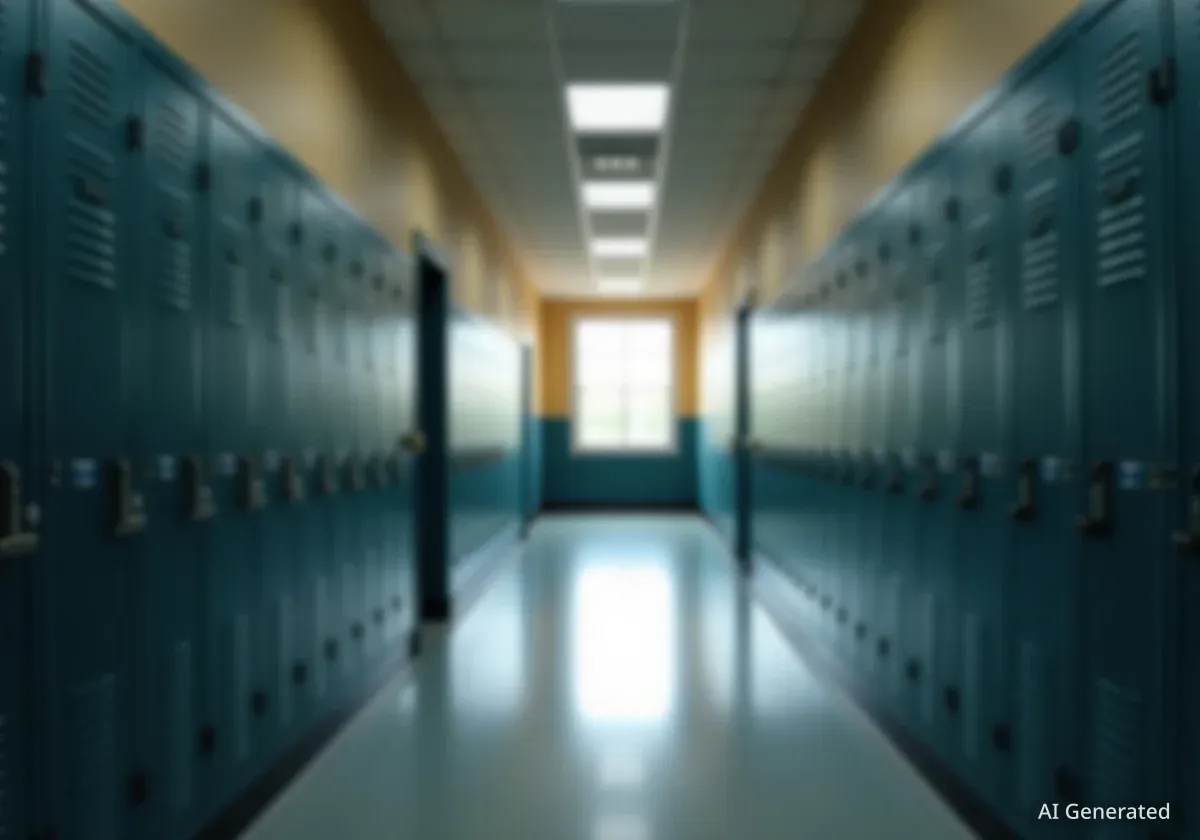The Texas Tech University System has directed its five universities to limit classroom instruction and discussion related to transgender and nonbinary identities. The new guidance, issued by Chancellor Tedd Mitchell, makes Texas Tech the first university system in the state to implement such restrictions on academic content.
In a letter sent to university presidents, Mitchell instructed them to ensure faculty compliance with state laws and directives that define gender as strictly binary. This move requires a review of all course materials, syllabi, and curricula across the system.
Key Takeaways
- Texas Tech University System Chancellor Tedd Mitchell issued a directive limiting classroom discussions on transgender and nonbinary identities.
- The policy applies to all five universities within the system, requiring a review of course materials and syllabi.
- The guidance is based on a new state law, a gubernatorial letter, and a presidential executive order promoting a binary view of gender.
- Civil liberties organizations have criticized the move, stating it undermines academic freedom and misinterprets the cited laws.
New Directive Issued Across University System
Chancellor Tedd Mitchell's letter, distributed late Thursday, outlines new expectations for faculty regarding classroom content. It instructs the presidents of the system's five universities to ensure that all academic instruction aligns with specific state-level directives.
The guidance calls for a comprehensive review of academic materials to make any necessary adjustments. This includes syllabi, course content, and other curriculum-related documents. The goal is to ensure that classroom teaching does not contradict the legal framework cited in the chancellor's letter.
This system-wide policy follows a similar, more localized instruction recently given to faculty at Angelo State University, which is one of the campuses within the Texas Tech system. The new directive now formalizes and expands this approach to all institutions under the system's governance.
The Texas Tech University System
The system is comprised of five institutions: Texas Tech University, Texas Tech University Health Sciences Center, Angelo State University, Texas Tech University Health Sciences Center El Paso, and Midwestern State University.
Legal and Political Justifications
In his communication, Chancellor Mitchell provided three specific sources to justify the new restrictions on academic discussion. He instructed university leaders to ensure faculty instruction adheres to these points.
The justifications provided are:
- A new state law that requires a strict binary definition of gender for the purpose of collecting vital statistics.
- A letter from Governor Greg Abbott directing state agencies to reject what he termed "woke gender ideologies."
- A presidential executive order that recognizes only male and female sexes.
Mitchell emphasized that faculty must adhere to these legal standards within their professional roles. He stated that while employees retain their First Amendment rights in a personal capacity, their work for the university must comply with the law.
"While recognizing the First Amendment rights of employees in their personal capacity, faculty must comply with these laws in the instruction of students, within the course and scope of their employment," Chancellor Mitchell wrote in the memo.
Concerns Over Academic Freedom
The directive has drawn immediate criticism from civil liberties and academic freedom advocacy groups. Organizations including the ACLU of Texas and the Foundation for Individual Rights and Expression (FIRE) have raised concerns about the policy's impact.
These groups argue that the laws and letters cited by Chancellor Mitchell do not explicitly prohibit classroom discussion or teaching about LGBTQ+ identities. They contend that the university system's interpretation is overly broad and constitutes a threat to academic freedom, which is a core principle of higher education.
Critics suggest that such restrictions could create a chilling effect, discouraging faculty from teaching complete and accurate information in fields like sociology, psychology, history, and health sciences. The lack of specific detail in the chancellor's letter about what is and is not permissible has also created confusion among educators.
A Developing Legal Area
In his letter, Chancellor Mitchell acknowledged that this is "a developing area of law." He also noted that accrediting bodies, such as the American Psychological Association, are beginning to work with universities to find a balance between educational commitments and new legal requirements.
Implementation and Future Implications
The immediate task for the university presidents is to oversee the review of all academic content. Faculty members with questions about how to apply the new guidance have been instructed to consult their deans or provosts for clarification.
The implementation of these rules has reportedly been inconsistent so far. According to some faculty members, the information has been communicated through department chairs and college meetings rather than through a single, clear campus-wide announcement. This has led to uncertainty about the precise scope of the restrictions.
This policy change occurs as Chancellor Mitchell prepares to step down from his position. His successor is expected to be state Senator Brandon Creighton, whose appointment is pending confirmation by the system's regents. The long-term enforcement and interpretation of this new academic policy will likely fall to the incoming leadership.
The move by the Texas Tech University System could set a precedent for other public university systems in Texas and other states considering similar policies, making it a closely watched development in the national conversation about education, law, and civil rights.





